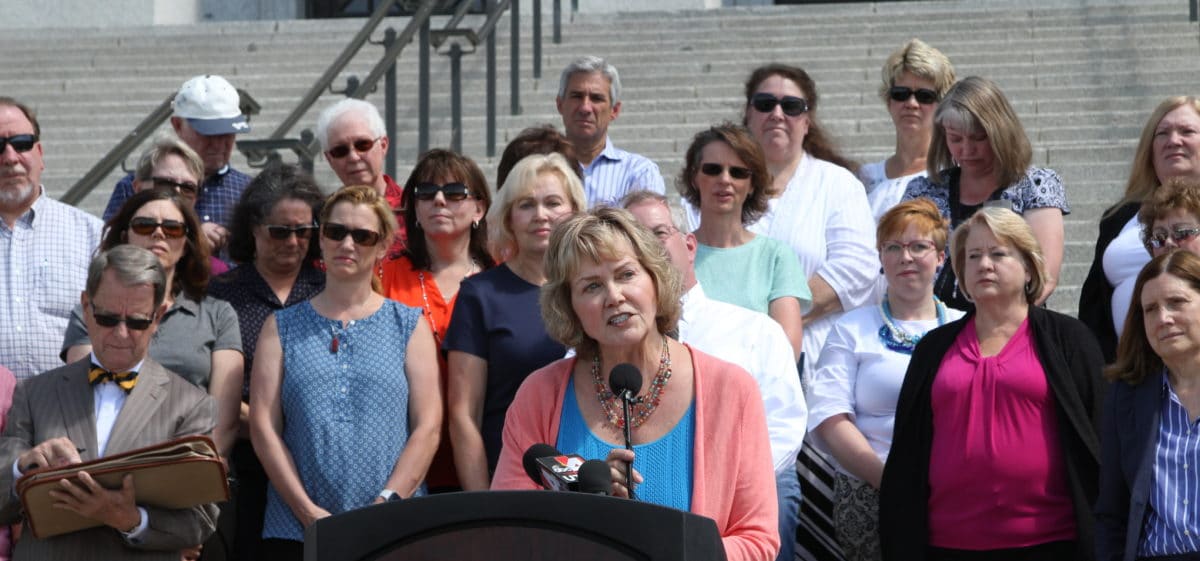Source: The Salt Lake Tribune
The 2018 election year will be different, very different. We’ll be voting on many elected officials. All of them will be important. But elections for the Utah State Board of Education will be altered. For the first time in decades, those elections will be partisan.
Yes, that means candidates will be running, if they want to win, as either a Republican or a Democrat. This is because of a last-minute amendment to SB 78 that was passed by the Legislature in 2016.
If board members are partisan (e.g., they run for this office as a member of a political party), they are obligated as an elected official of their party to have allegiance to their identified party’s platform. Some Republican officials have even required a “loyalty oath” to the party platform as a condition of seeking a Republican nomination. When board candidates seek to become their party’s candidate, they will be judged by their adherence to that platform.
Yet Utah Code requires that boards, “shall design their school programs that are suggested by generally accepted scientific standards of evidence, to focus on the core standards for Utah public schools.”
Let’s consider just one potential conflict with party platforms. Keep in mind the reality that if Utah election trends continue into the future, most future members of the State Board of Education will be Republicans.
Utah Republicans have a platform that declares national monuments are unconstitutional unless approved by Congress. This is in spite of the reality that the Antiquities Act, which allows monument designations, was enacted by Congress.
The Democratic platform states that “public lands are national treasures.”
Which platform is correct? Actually, it shouldn’t matter. State Board of Education members should not be considering political party platforms in their decisions. They should be considering current Utah Code requirements and the educational needs of the students. Utah law and what’s best for students have been the guiding principles in Utah education for decades under our nonpartisan boards of education.
Because of the passage of SB 78, future state board candidates who are interested in serving the educational needs of children will need to subscribe to their party platforms. They will be selected and judged in their county and state party conventions based on their adherence to those platforms and party principles.
Data-driven scientific standards, information and public education decisions will become less important when those partisan candidates are elected as partisan members of the State Board of Education. Party elites will frequently remind state board candidates of the principles stated in their party platform and bylaws and demand conformity by elected board members.
And then there’s that conflict with the Utah Constitution. Article X, Section 8 reads, “No religious or partisan test or qualification shall be required as a condition of employment, admission, or attendance in the state’s education systems.”
State Board of Education members receive a modest salary. They receive health benefits and retirement benefits consistent with those available to other board employees. That looks like employment to me.
If it gets paid like a duck, gets benefits like a duck and walks and talks like a duck, it must be a duck. In this case, board members must be employees in the state’s education system.
This constitutional provision provides protections we all support. School employees, be they teachers, administrators or board members, should not base their decisions on a religious preference nor their political affiliation or any other “partisan test.”
It is for these reasons that Utahns for Public Education and Alliance for a Better Utah and other plaintiffs are challenging the constitutionality of SB 78 in the judicial system. We simply believe this bill is unconstitutional. That will be the basis of the lawsuit.
But we also think the bill was poor legislative judgment. Politics do not belong in our schools. State Board of Education candidates should not be screened by delegates and party elites for their adherence to party platforms and bylaws. The needs of Utah students should always be first and foremost. Decisions should be driven by good data, not party loyalty.
Sheryl Allen is a former state legislator and a board member of both Utahns for Public Schools and Alliance for a Better Utah.
Read Salt Lake Tribune OpEd here.

